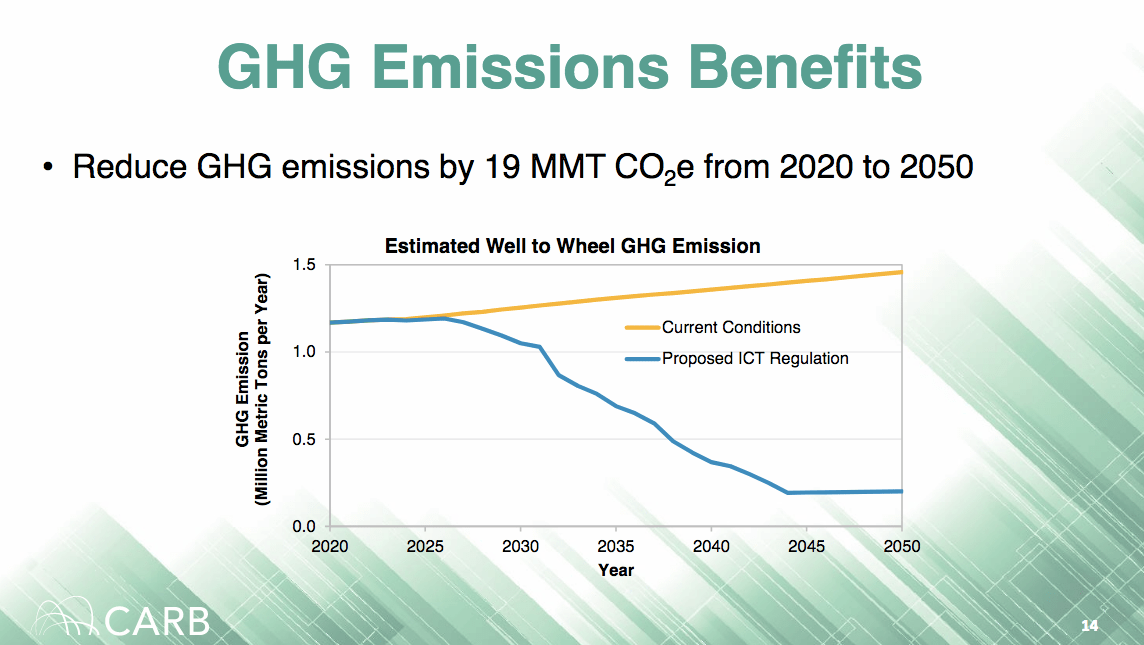The California Air Resources Board (CARB) today passed its Innovative Clean Transit Regulation, which sets out regulations requiring transit agencies to transition their fleets to zero-emission technologies. The rules call for all buses purchased after 2040 to be zero-emission.
More than fifty transit agencies in California are in the process of purchasing and testing electric-powered buses, and sixteen agencies have already committed to completely transition their fleets to zero-emission buses. The transit sector, most of which is publicly owned and operated, is seen as a first step towards transitioning all heavy-duty vehicles in the state to zero-emission engines, as well as a demonstration of the state's commitment to cleaning up emissions.
The new rules have been under discussion for a while, and they incorporate concerns from transit agencies, including delayed requirements for small fleets and allowing some exemptions so as not to disrupt transit's mobility goals.
CARB's research shows money savings to agencies over time from greatly reduced fuel costs, but it will require large upfront investments in vehicles and infrastructure. There are already many incentives available to help agencies with these costs, and CARB committed itself to helping them obtain that funding.
The fossil fuel industry had fought the new rules, arguing that “near-zero emission” technologies using natural gas were superior because they are less costly than electric vehicle technology. Under the rule, a quarter of new vehicles must be zero-emission, while the rest of an agency's purchases must be “near-zero” technology. Eventually all “near-zero” technologies will be phased out.
During today's hearing, Professor Dan Sperling sounded a note of caution, while emphasizing his support for the rule. While it is crucial to replace polluting buses because “diesel buses are worse than cars per person mile traveled,” he reminded everyone that “buses are only a tiny part of the pollution problem.”
Buses make up only a small part of the overall fleet of California vehicles—he estimated it was less than 0.001 percent—and they emit only a relatively small percent of overall transportation emissions. Also, the new regulation “affects one of the most fragile governmental entities,” and transit agencies are struggling with falling ridership and adapting to all kinds of new technology, while their role in serving the most disadvantaged parts of the community remains paramount.
“Our greatest need is more and better transit,” he said, for environmental, health, and mobility reasons. “I worry about distracting management from their first priority” with the imposition of what amounts to a unique regulation that hasn't been imposed on any other industry.
He and other board members emphasized the need to work in partnership with transit agencies throughout the state—“We need to bend over backwards,” said Sperling—to make this work.
Board chair Mary Nichols reminded everyone that this rule is “the beginning of a process.” CARB expects the new regulation to help jump start electric vehicle technology for large vehicles, and that trucks will not be far behind. At the same time, starting with buses is important, she said. “It's a highly visible act. Everyone sees buses and knows how they affect local air quality.”
Adrian Martinez, an attorney for EarthJustice, points out that a quick transition to electric buses is important also because transit vehicles affect local air pollution, and some of the hardest-hit communities are those that most rely on transit.
“We need to figure out how to get more people on transit,” he told Streetsblog. “Couple this new rule with bus-only lanes, increased service, and other improvements, and it's a win-win for climate change.”






